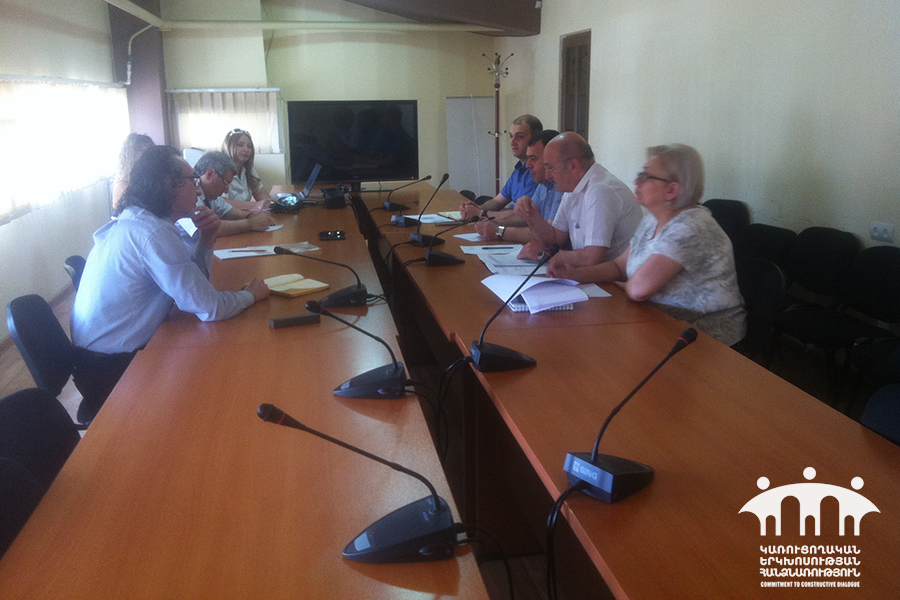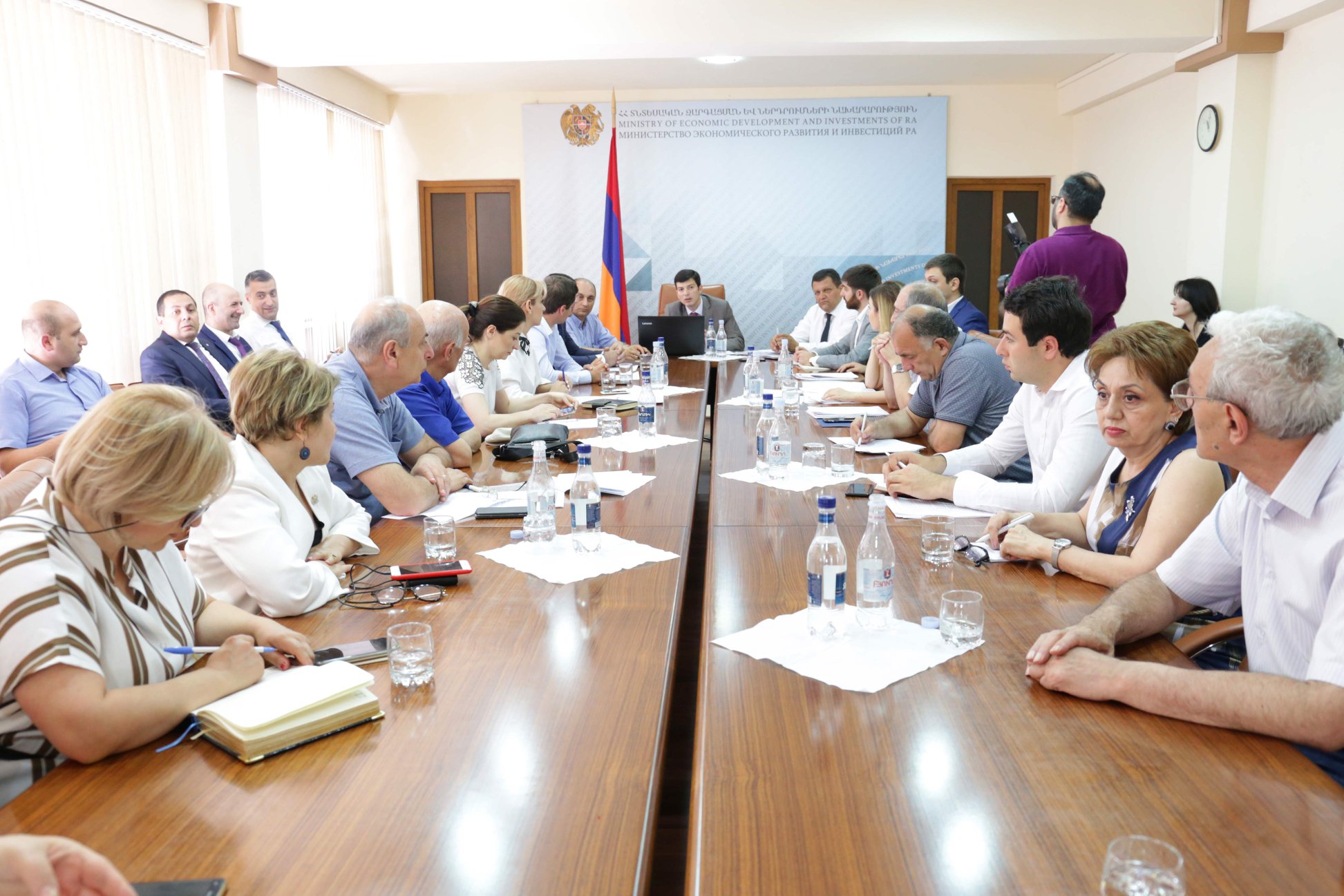
Two public discussions on the Draft Medium Term Expenditure Framework for 2020-2022, including the Applications for Budget Financing for 2020 were held at the Ministry of Economy.
On the Draft Medium Term Expenditure Framework for 2020-2022, including the Applications for Budget financing for 2020 of the Ministry of Economy. Mr. Vahe Grigoryan, representative of the “Centre of Economic Rights”NGO, which is a member of CSO Anti-Corruption Coalition of Armenia created in the scope of the EU funded “Commitment to Constructive Dialogue” project participated in the discussion as well.
Issues related to the tax privileges provided to organizations in case of the certain volume of investments, the work of the SME DNC representatives in the border regions and communities and the number of employees, the launch of the “Nairit” plant were discussed.
On the same day, a public discussion Draft Medium Term Expenditure Framework for 2020-2022, including the Applications for Budget financing for 2020 of the Agricultural programs. Mr. Tigran Gabrielyan, the Deputy Minister of Economy conducted the discussion. The event was attended by the heads of responsible departments of the Ministry, the representatives, of the Food Safety Inspection Body of the Republic of Armenia, Agricultural Alliance, National Agrarian University of Armenia, the Greenhouse Association, Areni Festival Foundation, the Branch Republican Union of Trade Unions of Agribusiness and agricultural and other organizations individuals participated in the meeting as well.
Welcoming the event participants, Tigran Gabrielyan highlighted the importance of active cooperation with the specialists of the NGO sector and the need for such discussions, which will contribute to better agricultural policy, making the budget process more transparent and inclusive and the expenditure programs targeted and substantial as well.
Further, there was an interesting discussion and exchange of ideas among the participants. CSO representatives raised a number of issues specifically related to cooperatives’ support, subsidization crediting programs, direct financing of farms, legislative changes, food security, insurance coverage and other issues.
The Ministry officials provided clarifications on the raised issues, expressing willingness to continue the dialogue and active cooperation in the future, as well as to involve non-governmental organizations in the development of the programs to make the most effective solutions to the problems facing the sector.



